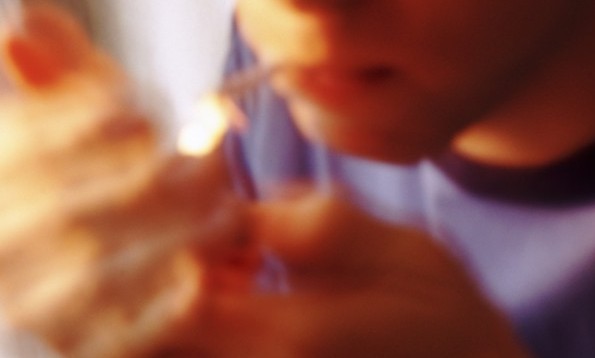Why gay teens take more unhealthy risks: 4 theories
A new study finds that LGBT teens are more prone to dangerous behavior than their heterosexual peers. Why?

A free daily email with the biggest news stories of the day – and the best features from TheWeek.com
You are now subscribed
Your newsletter sign-up was successful
It's no secret that teenagers are prone to foolish, risky behavior. But a new study by the Centers for Disease Control and Prevention has found that gay, lesbian, and bisexual high schoolers are more like likely than their heterosexual peers to smoke, drink, use drugs, have unprotected sex, and be bulimic. While the exact reasons why LGBT teens would be more likely to engage in such behavior are unclear, plenty of commentators are offering up their own explanations. Here are four:
1. They're socially stigmatized
"Many risky behaviors are related to how people feel about themselves and the environment they're in," says Laura Kann with the CDC's Division of Adolescent Health, as quoted by The Huffington Post. LGBT teens might be more prone to risky behavior because they feel socially rejected and stigmatized by their straight peers.
The Week
Escape your echo chamber. Get the facts behind the news, plus analysis from multiple perspectives.

Sign up for The Week's Free Newsletters
From our morning news briefing to a weekly Good News Newsletter, get the best of The Week delivered directly to your inbox.
From our morning news briefing to a weekly Good News Newsletter, get the best of The Week delivered directly to your inbox.
2. Plus, gay teens are bullied
"It's possible that gay-bashing reduces teens' sense of self-worth and makes them less likely to take care of themselves," says Anna North at Jezebel. If so, this shows that the effects of bullying go beyond making someone feel bad in gym class, and "that equality isn't just a moral issue, but one of personal safety."
3. They don't have enough support
"Schools and communities should take concrete steps to promote healthy environments for all students," says Kann, as quoted by Medical News Today. LGBT youth especially need "safe spaces" and "caring adults" so they don't succumb to peer pressure and engage in risky behavior.
A free daily email with the biggest news stories of the day – and the best features from TheWeek.com
4. Maybe they're just more honest
It's important to note that these numbers are self-reported, "so it's possible that gay and bisexual teens are simply more willing to own up to their risky behaviors" than their straight peers, says North.